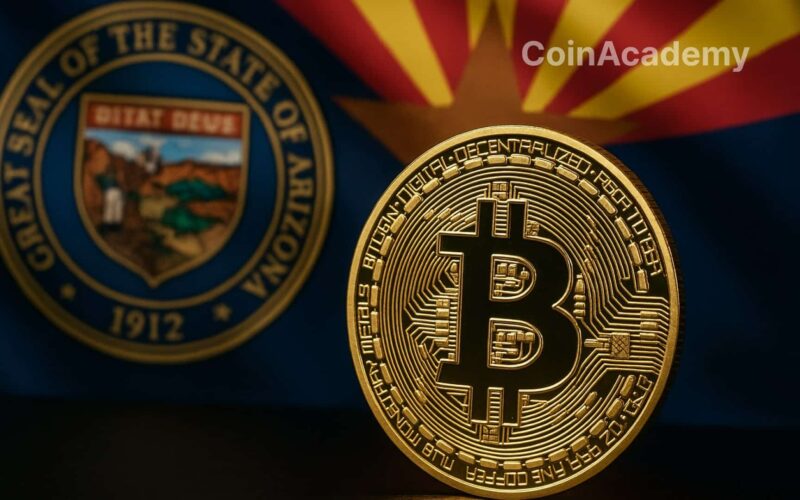L’Arizona could become the second American state to officially hold a public reserve in bitcoin, following a tight Senate vote (16-14) in favor of the HB2324 proposal.
The law would allow the state to retain seized or unclaimed cryptocurrencies in an official fund, without engaging in active purchases of BTC, thus avoiding direct political pushback.
This development is part of a broader trend in the United States, where several states, including Texas and New Hampshire, are exploring or adopting similar strategies around digital assets.
The Senate votes 16-14 to validate a BTC reserve
The vote barely passed, but it could mark a historic turning point: Arizona is set to become the second American state to establish a public reserve fund in bitcoin. The HB2324 bill has just been passed by the Senate, with 16 votes to 14. Only a final approval from the House is needed for the state to officially hold bitcoins… and potentially much more.
Bitcoin as a State Reserve: Another Step towards Legitimization
HB2324 provides an update to the laws on the confiscation of abandoned property. What does this mean? If no one claims seized or forgotten cryptocurrencies, the state can now keep them as unclaimed property. And integrate them into a “reserve fund in bitcoins and digital assets“.
This is a first for Arizona, but not an idea out of thin air: in April, the HB2749 law had already paved the way, by adapting the legal framework of unclaimed property to the era of wallets and private keys. HB2324 takes the logic further, by creating an official structure to hold these assets and potentially leverage them strategically.
An Assumed (and Contested) Crypto Strategy
The project isn’t universally accepted. Another bill, SB1025, aimed to authorize the state to actively invest in bitcoin with seized funds. That one was vetoed by Democratic Governor Katie Hobbs, who considered cryptos as an “untested investment“. Not secure enough for taxpayers.
But HB2324 is more subtle. It’s not about buying bitcoin here, but about keeping what the state already recovers. A legal nuance, but it changes everything politically: Arizona isn’t becoming a buyer, it’s becoming a custodian.
A Strong Signal in the State War
Arizona isn’t alone. Texas is also making moves, with a similar law in the validation process. But only New Hampshire has completed the legislative process. If the bill passes in the House, Arizona will become the second American state to have a reserve in digital assets.
In a country where every state is positioning itself for the tech of tomorrow, the gesture is powerful. And it’s not going unnoticed as the price of bitcoin flirts with $106,000.
A Bitcoin Reserve: Why It Matters
Beyond the symbol, the idea of a fund for a bitcoin reserve raises a real question: what is the value of a state that anticipates a decentralized monetary future? In a world where inflation undermines fiat currencies, holding BTC can quickly become more than a bet: an act of fiscal prudence.




